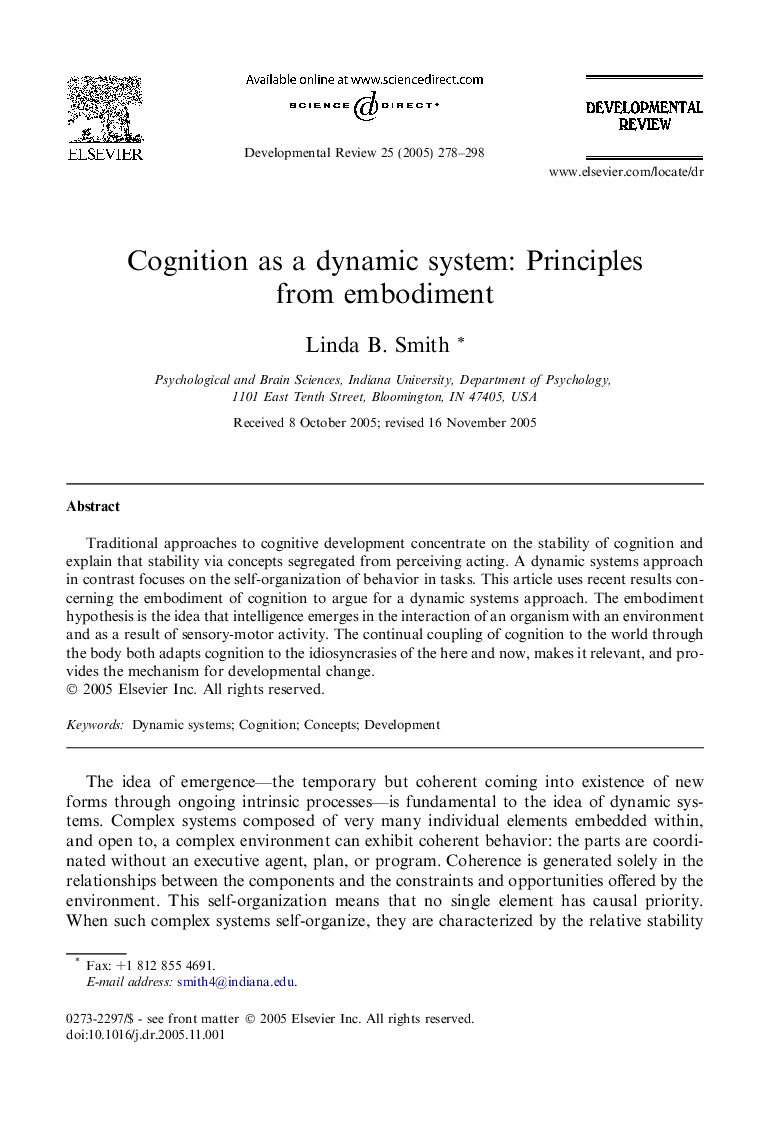| Article ID | Journal | Published Year | Pages | File Type |
|---|---|---|---|---|
| 9647691 | Developmental Review | 2005 | 21 Pages |
Abstract
Traditional approaches to cognitive development concentrate on the stability of cognition and explain that stability via concepts segregated from perceiving acting. A dynamic systems approach in contrast focuses on the self-organization of behavior in tasks. This article uses recent results concerning the embodiment of cognition to argue for a dynamic systems approach. The embodiment hypothesis is the idea that intelligence emerges in the interaction of an organism with an environment and as a result of sensory-motor activity. The continual coupling of cognition to the world through the body both adapts cognition to the idiosyncrasies of the here and now, makes it relevant, and provides the mechanism for developmental change.
Related Topics
Social Sciences and Humanities
Psychology
Developmental and Educational Psychology
Authors
Linda B. Smith,
